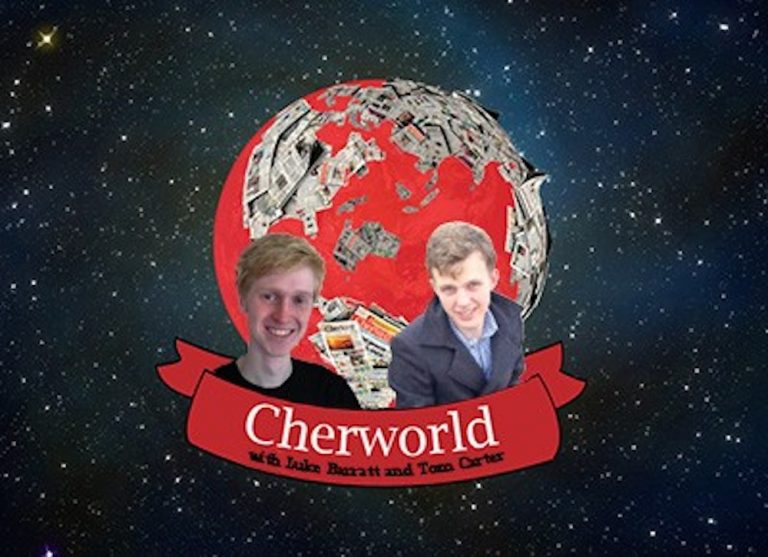“The whole secret of farce is that it’s about ordinary people in extraordinary situations: if it happens to a bunch of clowns it isn’t funny at all”. So said Ben Travers in 1979 during an interview with Alan Ayckbourn, and any director would do well to heed his advice.
Long before Brian Rix thought of dropping his trousers, Ben Travers was packing out the Aldwych Theatre with a series of hugely popular farces. Written between 1925 and 1933, some of the best of them were turned into films. Madcap comedies like Rookery Nook, Thark and Plunder immersed audiences in a Wodehousian world of well-meaning chumps, formidable wives and buck-toothed vicars. But best of all was his dotty dialogue that led characters to utter lines like : “Don’t bend like that, you look like a prawn.”
To enter Travers’s world is to go back to a time when any mention of sex was considered saucy. This isn’t surprising when we remember that Travers was born in 1886, and as a child recalls seeing Charlie Chaplin strut his stuff, and William Gillette take Sherlock Holmes to the stage. Travers served as a pilot in the First World War and worked in RAF Intelligence in the Second. A genial-sounding fellow, he loved cricket, chorus girls and pipe-smoking, and even into his nineties liked to stand on his head to lift his spirits. When asked by Roy Plomley on Desert Island Discs in 1975 what he’d most like to get away from he answered: ”I’m 88. My feet.”
[mm-hide-text]%%IMG_ORIGINAL%%12730%%[/mm-hide-text]
Over the years there have been some revivals of Travers’ work – most notably Plunder at the National Theatre in 1978 – but generally his farces were regarded as charming but antiquated. Yet on my first reading of Thark I couldn’t stop laughing. As the critic Michael Billington so neatly put it: “Travers’ farce remains as gloriously and sublimely irrelevant as it ever was.” I could see my job as director would be to lift Thark from the category of quaint revival, and help reveal it as the comic masterpiece it really is.
The play’s setting is the eponymous Thark, an isolated country house in deepest Norfolk. Reputed to be haunted Thark’s owner, Sir Hector Benbow – a lecherous old toff – arrives from London to investigate. He’s accompanied by various family members, all of whom are enmeshed in a series of romantic misunderstandings of their own making. The plot-line is as creaky as the house itself, and the ensuing bad behaviour threatens to bring the set crashing down around the actors’ heads.
Travers’ farces were originally written for a company of well-known comic actors, so much like Shakespeare he wrote with certain performers in mind. The fact that Tom Walls, his leading man, always insisted on his girlfriend being given a part kept Travers on his toes, particularly as the girlfriend in question kept changing. So when it came to casting our production, I wanted to make sure the roles fitted our performers as seamlessly as a Saville Row suit.
[mm-hide-text]%%IMG_ORIGINAL%%12728%%[/mm-hide-text]
Auditions kicked off last Christmas, and producer, Claudia Graham, and production manager, Charles Pidgeon, were as excited as I was at the calibre of actors who made their way to LMH. By the end of the day we had bagged ourselves a splendid cast of matrons, shop-girls and chinless wonders. The only part we’d failed to cast was Death, Thark’s aptly named butler, whose lugubrious presence lends the play its only existential chill. With minutes to spare, in walked George Fforde, and we knew by his spooky steps and sinister hisses that our day’s work was done.
Like all the best farces there is a frenetic momentum to Thark, which modern interpretations like to emphasise. So with the help of our dramaturg, James Watson, we kicked off our early rehearsals with improvisation and spontaneity exercises. It wasn’t long before Lord Benbow (played by Adam Diaper) and his nephew Ronny (played by Barney Shekleton) were cuddling up on an imaginary double bed. The best farces may appear Brylcreem slick on the surface, but there’s a lot of energetic paddling going on down below.
The newly opened Michael Pilch Studio in Balliol’s Postgraduate Annexe has proved the ideal space for our production, enabling us to establish two domains on stage. Production designer, Chris Page, sees the audience seating plan as key to “raising the energy and comic pace of the whole piece”, while Georgia Crump, the production’s talented costume designer, is working to evoke the aesthetic of “rich people fooling around”. Spooky weather is central to the play’s atmospherics, and technical managers, Catrin Haberfield and Noah Rivkin, are “pumped” to experiment with the Studio’s state-of-the-art effects.
Freud believed that laughter was the release of anxiety. While farce isn’t to everyone’s taste, we hope even its fiercest critics will find our production of Thark a therapeutic experience. Some of England’s finest playwrights – Michael Frayn, Tom Stoppard, Joe Orton – were farceurs, but Ben Travers got there first. His only weakness as a writer was that he wasn’t great at endings. So channelling his spirit, we’ve come up with a new Tharkian twist. We hope that he wouldn’t have told us to Thark Off, and would’ve been tickled to see his work revivified for a new generation of Oxford audiences. In farces, everything must go wrong, but in exactly the right way. It is towards this truism that we have been working. In the words of Hook, Sir Hector’s put-upon manservant: “I’m afraid we’ve made a bit of a mess.”



